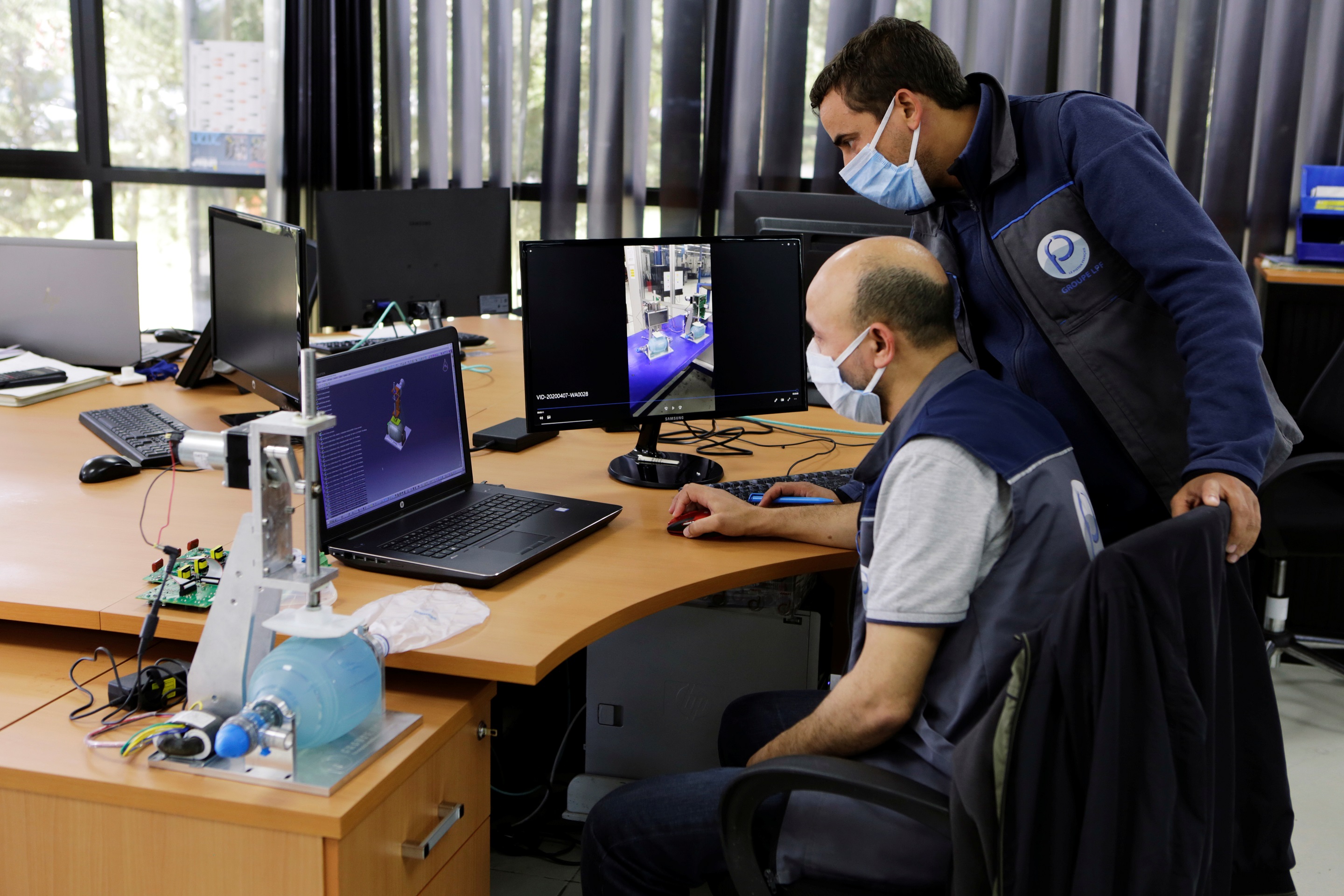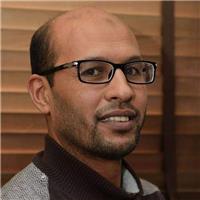سيبقى موعد السادسة من مساء كل يوم، في فترة الحجر الصحي المغربي المرتبط بوباء كورونا، موشوما في الأذهان إلى ما لا نهاية له. وهو الموعد الذي صارت له هيبة، منذ الإعلان عنه، ليقدم فيه فريق من وزارة الصحة النتائج الرسمية لتطور وباء كورونا؛ وخاصة الحالات التي خضعت للمعاينة والتحليل، فضلا عن عدد الوفيات، وتلك التي شفيت.
ولأنه موعد رسمي، ويتضمن أخبارا مؤكدة، ومن جهة موثوقة، فقد راحت معطياته تنتشر في المواقع الإخبارية، وعلى مواقع التواصل الاجتماعي وبين الناس، بكل ثقة. فلا تجد أحدا يناقش مصداقية الأرقام، بل ينصب النقاش حول الوقع الذي خلفه عدد الوفيات، وأيضا تفاقم عدد المصابين بالفيروس، وأحيانا عدد المتوفين بالقياس إلى عدد المصابين، وبالمقارنة مع العددين في جملة من دول العالم تعاني الوباء، وخاصة ألمانيا والأردن.
وباء كورونا ووباء الكليك
لطالما عانى الرأي العام المغربي من صحافة "الفاست فود"، والبحث عن "الكليك"، والرغبة في زيادة المشاهدات، لكسب المزيد من المال، ولو على حساب العنوان المبالغ فيه، أو الكاذب، والخبر المصاغ برعونة، ودون أي مراعاة لسلامة اللغة ولا المعطيات، ولا التداعيات التي يفترض أن يخلفها الخبر على الناس عند نشره.
أكثر من ذلك، فقد تحول الأمر، في وقت لاحق من تفشي "وباء الكليك"، المعدي، والفتاك، إلى صناعة الأخبار، وخلق الأحداث بأسلوب ماكر، ومغال، وبخاصة عن طريق فيديوهات تقتحم الحياة الخاصة للمشاهير أو المغمورين، على حد سواء، سرعان ما تحدث صدمة عند المتلقي، وترفع عدد المشاهدات، وتضخ الملايين في الحسابات البنكية لأصحابها.
ولم يكن للإعلام الجاد أي فرصة لصد التيار الجارف لـ"وباء الكليك"، سيما وهو يقاوم كي يبقى واقفا على قدميه، في ظل تراجع قارئه ومتتبعيه ومعلنيه، الذين فضلوا الأرقام الكبيرة على المصداقية في الخبر والنقد الرصين والتحليل المتين، فأحرى أن يشن معركة على الإعلام الفيروسي، من حيث انتشاره، ويتفوق عليه، وينهي وجوده من حياة الناس.
ومن الغريب، أن رواد الإعلام الفيروسي صاروا يتصدرون المشهد، ويقدمون أنفسهم على أن ما يجترحونه كل آن هو لمصلحة الشعب، ولغرض التوعية، وبهدف الكشف عن حقائق صادمة وتهم البسطاء والمشاهير على حد سواء، مما يتعين الإخبار به، دون الحاجة إلى أي تشذيب أو تهذيب أو مهنية. حتى صرنا أمام قواعد جديدة صحافة، يفرضها من يملكون الصدارة.
وباء كورونا وتعرية المشهد الإعلامي
شكل وباء كورونا عامل تعرية مدهش للمشهد الإعلامي المغربي، أشبه تماما بالرياح والمياه الطوفانية بالنسبة إلى الطبيعة. فمن ناحية، كان لقوة العاملين فعله في جرف أشجار الإعلام الفيروسي التي ليس لها من قرار، بحيث لم تعرف كيف تتعامل مع الوباء، ومن ناحية أخرى، أفرغ المجال للإعلام الجاد، الذي أصله ثابت وفرعه في السماء، كي يستعيد مكانته. وأكثر من ذلك، فإن العاملان معا اضطرا الأرضية التي يعيش فيها الإعلامان الجاد والفيروسي كي تتعامل مع الأنجع والأنفع والثابت.
وهكذا، فمنذ اليوم الأول، ولأن الأمر يتعلق بشيء جدي وشديد الحساسية، وهو المرض، وبالتالي الوفاة المحتملة، فقد هرع الرأي العام، إلى الصحافة ذات المصداقية، كي يتزود منه بالخبر اليقين، ويبني عليه قناعاته، بل وتصرفاته. بما أن هذا الإعلام كان يقدم للناس إرشادات تهم طريقة التعاطي مع الفيروس، في أدق التفاصيل (تلفزيون رسمي بقنواته، والوكالة الرسمية بلغاتها، ومواقع إخبارية، وصحافة مكتوبة تحولت إلى صيغة pdf).
ورغم أن الإعلام الفيروسي حاول أن يلحق بالركب لاحقا، بعد أن استجمع قواه، إلا أنه لم ينجح في تدارك الموقف. ذلك أنه لا يملك الأدوات التي تعينه على التعاطي مع موقف طارئ يهم الرأي العام كله على حد سواء، ويتطلب الحرفية؛ بما تعنيه القدرة على الاستماع، والدقة في التحرير، والمصداقية في النقل، فضلا عن كسب ثقة المتلقين، وبخاصة في ما يتعلق بالتوعية، والحشد، ورص الصفوف.
وما يؤكد أن "الإعلام الفيروسي" فشل فشلا ذريعا في اللحاق بركب الإعلام الجاد في معركة التصدي لوباء كورونا، أنه عزف على نفس الوتر الذي كان يعزف عليه من قبل، وهو البحث عن الانتشار الفيروسي على شبكة الإنترنت، باللايفات التي لا تراعي خصوصيات الناس، وتمرير خطابات تحريضية، وأخرى فيها عنف غير مشروع، وبعضها فيها تمييز مرفوض.
وهنا بالذات المجال الذي تفوقت فيه الصحافة الجادة المتأنية، تلك التي تلتزم بالقانون والمهنية والمواثيق الأخلاقية، وتجعل من الانتشار هدفا أخيرا لها (برامج خاصة وإخبارية بالقناة الثانية حققت نسبة مشاهدة كبيرة، وتضاعفت ثلاثت مرات في أيام/حديث عن رغبة مستشهرين بالمرور عبر القناة الرابعة الثقافية، التي حققت نسبة مشاهدة كبيرة لبثها الدروس عن بعد).
وباء الإشاعة وقوانين الردع
وجدت السلطات المعنية بالتصدي للوباء الفيروسي نفسها في حاجة إلى تواصل شفاف وجدي مع الرأي العام، والذي يتين أولا إقناعه بحساسية الموقف، وثانية إقناعه بالتصرف وفقا للمطلوب من الإرشادات، وأخيرا إقناعه بالمعطيات المبرمج بثها كل مساء في الساعة السادسة، وأيضا عبر الوسائط الجادة ذات المصداقية بين الناس.
وهكذا تكررت الجملة التالية: "أنتم شريك أساسي في هذه المعركة، ودوركم مهم للغاية". وهي الجملة التي شكلت انتصارا للإعلام الجاد، وأكدت صوابية قناعاته، ودعواته المتكررة، على مدى سنوات، إلى ضرورة إصلاح المشهد كله، لبناء صحافة ذات مصداقية، تسهم في بناء مجتمع يمكنه أن ينمو ينمي وفقا لما يتوفر لديه من معلومات ومعارف ومعطيات شفافة ونزيهة.
ولأن الأمر يحتاج إلى الوعي، الذي لا يمكن أن يتبلور إلا بمعلومات صحيحة، فقد وجد من يعنيهم الأمر أنفسهم أمام حاجة ملحة أولا وقبل كل شيء إلى محاربة الإشاعة؛ المنتشر على السوشل ميديا، ومن خلال مواقع إخبارية همها الوحيد هو الربح ولا شيء سواه، حتى وإن نشرت معطيات محرفة أو كاذبة، تقوض كل ما سهرت السلطات الصحية وغيرها على الدفع به، بهدف التصدي لوباء كورونا.
وهنا أيضا، جاء الدور على الإعلام الجاد ليسهم في محاربة الإشاعة، ليتحول الأمر إلى جبهات متعددة، أولها التصدي للشائعات، وثانيها الإخبار بالمعطيات الصحيحة، وثالثها التوعية بما يتعين فعله وما لا ينبغي فعله في هذه الظرفية الصعبة، وأخيرا التكرار، أو ما يطلق عليه المختصون في الإعلان بـ"المطرقة"، بتكرار المعطيات وفق أسلوب معين كي تترسخ في أذهان الناس، ويتصرفوا سلوكيا بناء عليها.
وبما أن تلك الجبهات لم يكن ممكنا التفوق فيها دفعة واحدة، وبمجرد الرغبة في ذلك، وفقط لأن هناك وعيا من السلطات وبناء على توفر إعلام جاد لديه مصداقية، فقد عمدت السلطة إلى استصدار قوانين جديدة تتماشى مع الوضع الجديد، وتهدف إلى ردع المخالفين، من ناشري الإشاعة، ومثالها تلك التي بثت في الناس وتقول إن الحديث عن وجود فيروس مجرد هراء، أو تلك التي دعت الناس إلى الخروج والابتهال إلى الله، في وقت كانت القرارات الحكومية تؤكد وتعيد التأكيد أن على الناس أن يبقوا في بيوتهم، وأن يقصروا الخروج على الضروريات الملحة جدا.
وماذا بعد كورونا؟
يطرح كثير من الإعلاميين الجادين، الذين سارعوا بتلقائية كبيرة إلى الانخراط في التصدي للوباء في صحفهم وإذاعاتهم وقنواتهم، وحتى في السوشل ميديا، بطواعية، السؤال الذي لا بد منه: "ترى هل سيصمد الوضع المستجد بعد أن ينتهي وباء كورنا المستجد؟".
ولئن كان الأمل قائما في أن تتنبه الجماهير، وهي الفيصل في الجواب على السؤال المحوري، إلى ضرورة التفافها حول الإعلام الجاد، الذي منحها الثقة المفتقدة في الخبر، وبث فيها التوعية المطلوبة لتجاوز الخطر، وأمدها بالإرشادات اللازمة لتوخي الحذر، بل وأسهم في طمأنينتها بتقديمه خدمات مفيدة في الترفيه وتشتيت القلق الناجم عن الحجر الصحي في الييوت، فإن الخوف قائم من النسيان الذي يضرب الإنسان في مقتل.
فرغم التكرار الملاحظ في التحذير، مثلا، من الضغط على أزرار الكهرباء المشتركة في العمارات السكنية، إلا أنك سرعان ما تجد أحدهم يضغط على الزر، متناسيا. وقد يحدث ذلك بعد انحسار الوباء، وعودة الناس إلى الحياة الطبيعية، فيضغطون، مجددا، على أزرار الإعلام الفيروسي، وينسوا أن هناك إعلاما يستحق المتابعة.
ومع ذلك، فمن نسي وضغط على الزر، كان يسارع إلى غسل يديه بالماء والصابون، ويعقمهما. وعسى أن يحدث ذلك مع الإعلام الفيروسي، فينحسر الوباء، أو ينتهي إلى غير رجعة.


















![Palestinian journalists attempt to connect to the internet using their phones in Rafah on the southern Gaza Strip. [Said Khatib/AFP]](/sites/default/files/ajr/2025/34962UB-highres-1705225575%20Large.jpeg)





















